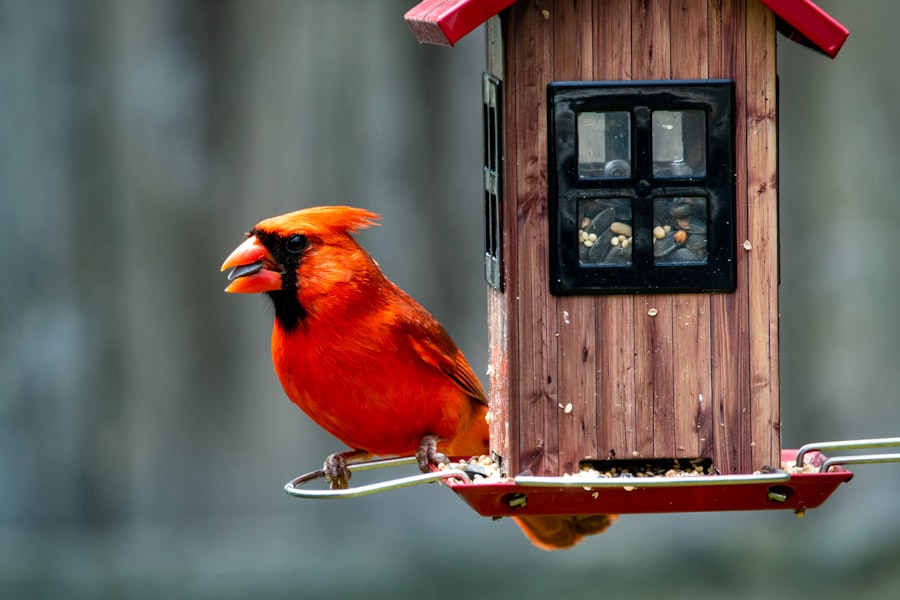When raising chickens, it is essential to understand and comply with local regulations. These rules vary by municipality and may include restrictions on the number of chickens allowed, coop and run specifications, noise and odor control measures, and health and safety requirements. Familiarizing yourself with these regulations ensures compliance and helps avoid potential penalties.
Zoning regulations may also impact chicken-keeping activities. Some areas have specific rules based on property size and proximity to neighboring properties. It is crucial to verify that your property meets the necessary criteria for keeping chickens.
This may include minimum lot size requirements or setback distances from property lines. Before starting a backyard flock, research your local laws and ordinances regarding chicken-keeping. Contact your local government offices, such as the planning department or animal control, for accurate and up-to-date information on regulations in your area.
By understanding and adhering to these rules, you can responsibly raise chickens while maintaining good relationships with your neighbors and community.
Table of Contents
- 1 Zoning and property size requirements
- 2 Coop and run specifications
- 3 Health and safety considerations
- 4 Noise and odor control
- 5 Permits and licenses
- 6 Penalties for non-compliance
- 7 FAQs
- 7.1 What are the laws regarding keeping chickens at home?
- 7.2 Where can I find information about the laws in my area?
- 7.3 What are some common regulations for keeping chickens at home?
- 7.4 Are there any health or safety concerns associated with keeping chickens at home?
- 7.5 What should I consider before deciding to keep chickens at home?
Key Takeaways
- Understanding local regulations is crucial for keeping backyard chickens legally and responsibly.
- Zoning and property size requirements vary by location and must be adhered to when setting up a coop and run.
- Coop and run specifications should provide adequate space and protection for the chickens, following local guidelines.
- Health and safety considerations include proper waste management and disease prevention to ensure the well-being of the chickens and the surrounding environment.
- Noise and odor control measures should be implemented to minimize disturbances to neighbors and maintain a pleasant living environment.
- Permits and licenses may be required for keeping backyard chickens, and it’s important to obtain them to avoid penalties.
- Penalties for non-compliance with local regulations can include fines, removal of chickens, or other legal consequences.
Zoning and property size requirements
Compliance with Zoning Regulations
It’s essential to familiarize yourself with these regulations to ensure that you are in compliance with the law and avoid any potential penalties for non-compliance. Failure to comply with zoning regulations can result in legal issues and fines.
Property Size Requirements
In addition to zoning regulations, there may be specific property size requirements for keeping chickens. Some areas may require a minimum amount of land for keeping chickens, while others may have restrictions based on the size of your property. It’s crucial to determine if your property meets these criteria before embarking on a chicken-raising venture.
Avoiding Legal Issues
By understanding and adhering to these property size requirements, you can ensure that you are in compliance with local regulations and avoid any potential legal issues. This will allow you to enjoy the benefits of raising backyard chickens while maintaining a positive relationship with your neighbors and local authorities.
Coop and run specifications

When it comes to raising chickens, the coop and run specifications are an important aspect of ensuring that you are in compliance with local regulations. Coops and runs are designed to provide a safe and secure environment for chickens, while also minimizing any potential impact on the surrounding community. Some areas may have specific guidelines on coop and run specifications, including the size and location of these structures.
It’s important to familiarize yourself with these specifications to ensure that your coop and run meet the necessary requirements. Coops and runs should be designed to provide adequate space for the chickens to move around and engage in natural behaviors, such as scratching and dust bathing. Additionally, these structures should be secure to prevent predators from accessing the chickens, as well as to minimize any potential noise or odor issues.
By understanding and adhering to these coop and run specifications, you can ensure that you are providing a suitable environment for your chickens while also complying with local regulations.
Health and safety considerations
When raising chickens, it’s important to consider the health and safety of both the chickens and the surrounding community. Chickens can carry diseases that can be transmitted to humans, so it’s crucial to take appropriate measures to minimize any potential health risks. This includes ensuring that the chickens are kept in a clean and sanitary environment, as well as providing them with proper nutrition and veterinary care.
Additionally, it’s important to take steps to prevent any potential safety hazards, such as securing coops and runs to prevent escapes and implementing measures to minimize any potential noise or odor issues. In addition to the health and safety of the chickens, it’s also important to consider the impact of chicken-raising activities on the surrounding community. This includes minimizing any potential noise or odor issues that may arise from keeping chickens on your property.
By taking appropriate measures to address these concerns, such as proper waste management and noise control, you can ensure that you are being a responsible chicken owner while also complying with local regulations.
Noise and odor control
One of the key considerations when raising chickens is controlling noise and odor. Chickens can be noisy animals, especially when they are laying eggs or feeling threatened. Additionally, chicken waste can produce odors that may be bothersome to neighbors.
It’s important to take appropriate measures to minimize any potential noise or odor issues that may arise from keeping chickens on your property. This includes proper waste management, such as regularly cleaning the coop and run, as well as implementing measures to minimize any potential noise disturbances. There are various strategies for controlling noise and odor when raising chickens.
This may include using absorbent materials in the coop to minimize odors, as well as implementing soundproofing measures to reduce noise levels. Additionally, it’s important to consider the placement of the coop and run on your property to minimize any potential impact on neighboring properties. By taking appropriate measures to address noise and odor concerns, you can ensure that you are being a responsible chicken owner while also complying with local regulations.
Permits and licenses

Understanding Local Regulations
In some areas, permits and licenses are required for keeping chickens on your property. These permits and licenses are put in place to ensure that certain standards are met when raising chickens, such as proper waste management and noise control.
Compliance with the Law
It’s important to familiarize yourself with the specific permit and licensing requirements in your area to ensure that you are in compliance with the law. This may include obtaining a permit for keeping chickens on your property, as well as adhering to any specific guidelines or regulations set forth by local authorities.
Benefits of Obtaining Permits and Licenses
By obtaining the necessary permits and licenses for keeping chickens, you can ensure that you are operating within the parameters of the law and avoid any potential penalties for non-compliance. Additionally, obtaining these permits and licenses demonstrates that you are committed to being a responsible chicken owner and are willing to adhere to any necessary regulations set forth by local authorities.
Penalties for non-compliance
Failure to comply with local regulations regarding the keeping of chickens can result in penalties and legal consequences. These penalties may include fines, citations, or even legal action taken against you by local authorities. It’s important to take local regulations seriously and ensure that you are in compliance with all necessary requirements when raising chickens on your property.
By understanding and adhering to local regulations, obtaining any necessary permits or licenses, and taking appropriate measures to address health, safety, noise, and odor concerns, you can minimize the risk of facing penalties for non-compliance. Additionally, by being a responsible chicken owner and taking appropriate steps to address any potential issues that may arise from keeping chickens on your property, you can demonstrate your commitment to being a good neighbor and member of the community.
If you’re considering keeping chickens at home, it’s important to be aware of the laws and regulations surrounding poultry ownership. One helpful resource is an article on PoultryWizard.com that discusses the legal aspects of keeping chickens in different areas. This article provides valuable information on zoning laws, coop requirements, and other important considerations for prospective chicken owners. It’s a must-read for anyone thinking about starting their own backyard flock. (source)
FAQs
What are the laws regarding keeping chickens at home?
In many areas, there are local laws and regulations that dictate whether or not you can keep chickens at home. These laws may cover the number of chickens allowed, coop requirements, distance from neighboring properties, and more.
Where can I find information about the laws in my area?
You can typically find information about local laws regarding keeping chickens at home by contacting your city or county government. Many areas also have the information available on their official websites.
What are some common regulations for keeping chickens at home?
Common regulations for keeping chickens at home may include restrictions on the number of chickens allowed, requirements for coop size and construction, distance requirements from neighboring properties, and rules about waste management.
Are there any health or safety concerns associated with keeping chickens at home?
There can be health and safety concerns associated with keeping chickens at home, such as the potential for spreading diseases, attracting pests, and creating odors. It’s important to follow best practices for chicken care and coop maintenance to mitigate these concerns.
What should I consider before deciding to keep chickens at home?
Before deciding to keep chickens at home, it’s important to consider local laws and regulations, the amount of space you have available, the time and effort required for chicken care, and any potential health or safety concerns. It’s also important to consider the needs and well-being of the chickens themselves.
Meet Walter, the feathered-friend fanatic of Florida! Nestled in the sunshine state, Walter struts through life with his feathered companions, clucking his way to happiness. With a coop that’s fancier than a five-star hotel, he’s the Don Juan of the chicken world. When he’s not teaching his hens to do the cha-cha, you’ll find him in a heated debate with his prized rooster, Sir Clucks-a-Lot. Walter’s poultry passion is no yolk; he’s the sunny-side-up guy you never knew you needed in your flock of friends!







